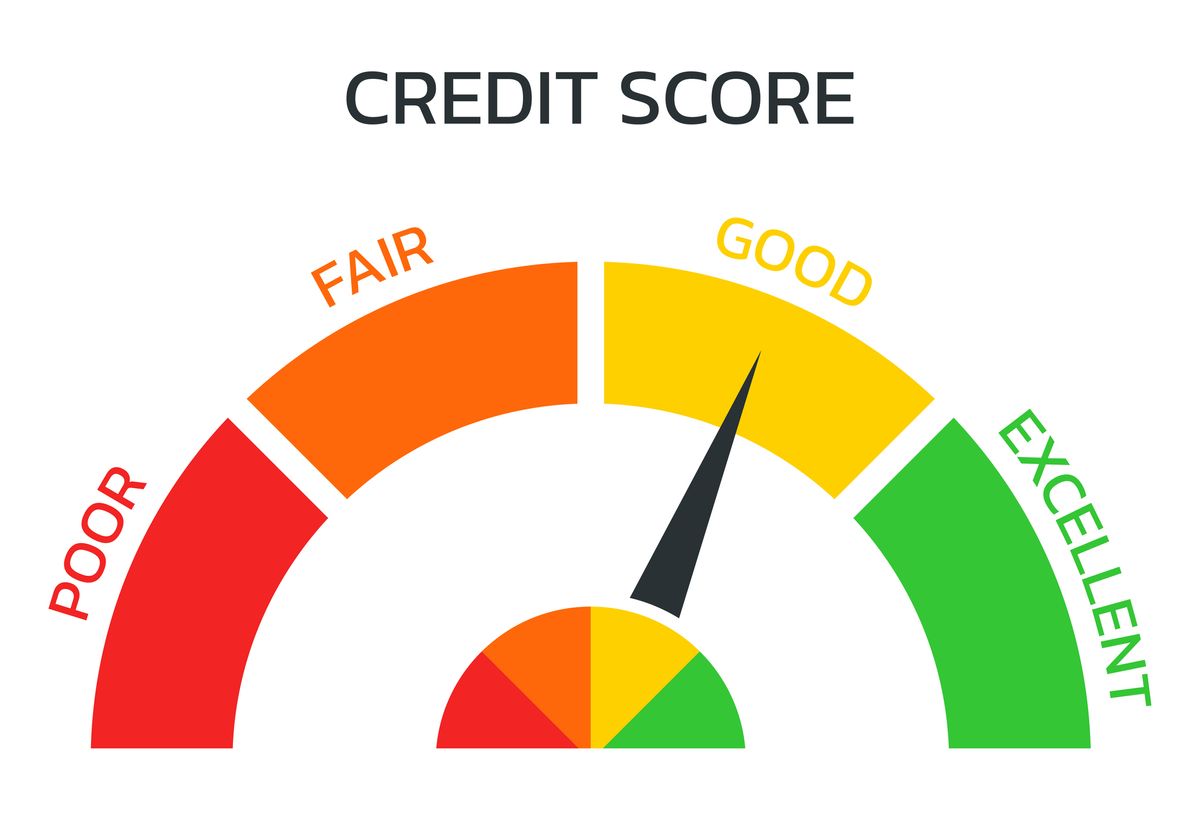The holiday season is a great time to assess your financial health and prepare to start the new year with a strong credit score. Maintaining or improving your credit score can open doors to better interest rates, higher credit limits, and more financial flexibility. Here are some practical steps you can take during the holidays to keep your credit score in top shape for 2025.
1. Review Your Credit Report for Accuracy
Your credit report details your credit history and plays a significant role in determining your credit score. Start by obtaining a free copy of your credit report from each of the three major credit bureaus (Experian, TransUnion, and Equifax) at AnnualCreditReport.com. Checking your report ensures there are no errors that could be dragging down your score.
What to Look For:
- Incorrect personal information: Check your name, address, and other personal details.
- Errors in account details: Verify that account balances, credit limits, and payment histories are accurate.
- Unauthorized accounts: Look for any accounts or hard inquiries you don’t recognize, which could indicate identity theft.
If you spot any errors, report them to the credit bureau and the creditor involved. Correcting inaccuracies can give your score a quick boost if they were harming it.
2. Keep Holiday Spending Within Your Budget
Overspending during the holidays can lead to a high credit card balance, which can impact your credit utilization ratio—one of the major factors in your credit score. Aim to spend only what you can pay off in full to keep your credit utilization low and avoid carrying a balance into the new year.
Tips for Keeping Spending Under Control:
- Set a budget for each spending category: Include gifts, holiday meals, travel, and other seasonal expenses.
- Track your purchases: Monitor spending in real-time through a budgeting app or your credit card’s mobile app to avoid going over your limit.
- Stick to cash or debit: If you find it difficult to stay within your budget on a credit card, consider using cash or debit instead.
By keeping holiday spending within budget, you protect your credit score and prevent a debt hangover in the new year.
3. Aim for a Low Credit Utilization Ratio
Credit utilization—how much of your available credit you’re using—makes up about 30% of your credit score. A utilization rate below 30% is generally recommended, but keeping it even lower (like under 10%) can have an even more positive impact on your score.
Ways to Maintain Low Credit Utilization:
- Pay down balances early: Consider making multiple payments throughout the month to keep your balance low before your statement closing date.
- Spread purchases across cards: If you have multiple credit cards, spread holiday purchases across them to avoid maxing out any single card.
- Request a credit limit increase: If you have a good payment history, some credit card issuers may grant you a higher limit, which can lower your utilization ratio if you keep your spending the same.
Managing your credit utilization effectively can help you maintain a high credit score during the holiday season, even if you use credit cards for your purchases.
4. Make On-Time Payments Every Time
Payment history is the most significant factor in your credit score, accounting for 35%. Even a single missed payment can hurt your score and stay on your report for years. During the holidays, it’s easy to overlook due dates, so make sure to prioritize on-time payments.
Strategies for Staying on Top of Payments:
- Set up automatic payments: Schedule auto-payments for at least the minimum amount to ensure your payments are made on time, even if you forget.
- Use reminders: Set calendar alerts or reminders on your phone a few days before your payment due dates.
- Avoid holiday “buy now, pay later” offers: Some holiday financing offers may defer payments, but they often come with fees or deferred interest that can complicate your payment schedule.
By keeping up with payments, you’ll maintain a strong payment history and keep your credit score healthy as you head into 2025.
5. Don’t Open New Credit Accounts Unnecessarily
The holidays can tempt you with offers for new credit cards or store cards with discounts, but opening multiple new accounts can lower your score in the short term due to the hard inquiries. Additionally, new accounts reduce the average age of your credit history, which can slightly impact your score.
When to Consider Opening a New Account:
- If it offers substantial long-term benefits: Only consider new cards if they provide significant rewards or benefits that fit your financial goals.
- If you need a balance transfer: If you’re carrying high-interest debt, a new balance transfer card could save you money if it offers a 0% APR promotional period.
- Avoid impulse applications: Resist the urge to open accounts solely for small discounts. Instead, focus on cards with ongoing benefits and manageable credit terms.
Limiting new credit applications helps you preserve your credit score and avoid extra debt.
6. Redeem Credit Card Rewards or Cashback to Offset Spending
If you’ve been accumulating points, miles, or cashback throughout the year, the holiday season is a great time to redeem them. Using rewards to cover some of your expenses can reduce your out-of-pocket spending and prevent you from relying on credit.
How to Use Rewards Wisely:
- Redeem for holiday expenses: Some cards let you redeem rewards directly for statement credits, which can help offset gift purchases or travel costs.
- Use points for gift cards: Many credit cards offer the option to redeem points or cashback for gift cards, which you can use for gifts or personal expenses.
- Look for seasonal rewards bonuses: Some cards offer additional redemption bonuses during the holidays, so check if you can get extra value.
Using rewards strategically can make holiday spending more affordable and prevent you from accumulating new debt.
7. Avoid Carrying Balances into the New Year
Carrying a balance from month to month can result in high-interest charges that add up quickly. If possible, pay off your credit card balances in full to avoid interest and maintain a strong credit score.
Ways to Pay Off Balances Faster:
- Focus on the highest-interest card first: If you have balances on multiple cards, focus on paying off the card with the highest interest rate first to minimize interest costs.
- Use holiday bonuses or rewards: Consider using a portion of any holiday bonuses or rewards you receive to pay down your credit card balance.
- Make extra payments: Even small extra payments can reduce your balance over time and help you avoid interest charges.
Paying off balances in full not only protects your credit score but also keeps your budget healthier for the new year.
8. Monitor Your Credit Score Regularly
Keeping an eye on your credit score helps you track your progress and spot any sudden changes that might indicate fraud or identity theft. Many credit card issuers and financial apps offer free credit monitoring, so use this feature to stay updated on your credit health.
How to Monitor Your Credit:
- Sign up for free credit alerts: Many credit card companies offer free monthly credit score updates and alert you to any significant changes.
- Use a credit monitoring service: Services like Credit Karma or Experian allow you to check your score and get notifications about changes in your credit report.
- Watch for signs of identity theft: If you see any drastic changes to your credit score or accounts you don’t recognize, take action immediately by freezing your credit and reporting any fraud.
Regular monitoring helps you maintain control of your credit and quickly resolve any potential issues.
9. Set Goals for Improving Your Credit in 2025
If you’re hoping to improve your credit score even further, start setting goals for the new year. Think about where you’d like your credit score to be by next December and what steps you can take to reach that target.
Examples of Credit Goals for 2025:
- Reduce credit utilization to under 10%: Aim to keep your balances low relative to your credit limits for maximum impact on your score.
- Increase credit card payments: Commit to paying more than the minimum each month to reduce debt faster.
- Boost your emergency fund: Having a strong emergency fund reduces the likelihood of relying on credit for unexpected expenses, which helps you maintain a low credit utilization rate.
Setting specific goals gives you a clear path to follow and keeps you motivated to strengthen your credit over time.
Final Thoughts
Taking a proactive approach to managing your credit during the holiday season will help you enter 2025 on a positive financial note. By monitoring your credit report, controlling your spending, and making timely payments, you can enjoy the holidays without compromising your credit score. Setting good habits now will give you a strong foundation for credit health and financial flexibility in the new year.





 GOOGL
GOOGL  META
META
Leave a Comment